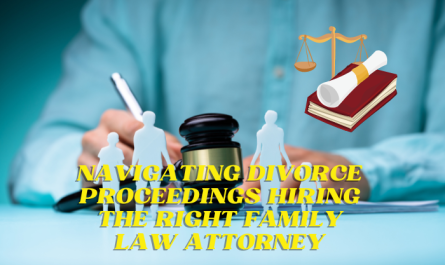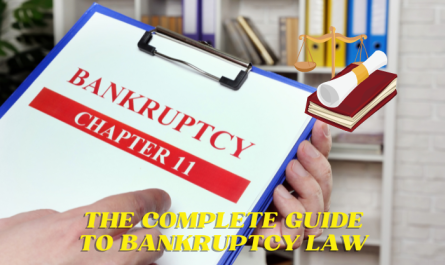Class action lawsuits hold significant power in the legal system, offering a way for individuals to join forces against a common cause. They are not just about large settlements or sensational headlines; they play a crucial role in ensuring justice and accountability in various sectors. Whether you’ve seen them mentioned in the news or received a notification that you’re part of one, understanding class action lawsuits is vital.
Understanding the Basics of Class Action Lawsuits
Class action lawsuits occur when a group of people with similar grievances files a lawsuit against a defendant. This group, known as the “class,” could include consumers, employees, or investors who have been wronged in some way. Unlike individual lawsuits, where a single plaintiff sues a defendant, class actions consolidate multiple claims into one lawsuit. This not only streamlines the legal process but also ensures that even minor grievances can be addressed without overwhelming the court system.
Often, these lawsuits involve large corporations, government entities, or other powerful organizations. They can cover a wide range of issues, including consumer protection, product liability, employment discrimination, and environmental harms. For those involved, class action lawsuits can offer a chance to seek redress where individual action might be impractical or too costly.
The Legal Process Behind Class Action Lawsuits
A court must certify a class action lawsuit before it can proceed. This certification is a critical step, ensuring that the claims of the class members are sufficiently similar and that the class representative can adequately protect the interests of all members. Certification involves several criteria, including numerosity (a large enough group of plaintiffs), commonality (shared legal issues), typicality (the representative’s claims are typical of the class), and adequacy (the representative and their legal team are capable of representing the class).
Once certified, the lawsuit moves forward much like any other litigation. Both sides engage in discovery, where they gather evidence and build their cases. Settlement negotiations often take place during this phase, as defendants may seek to avoid the uncertainty and expense of a trial. The court must approve any settlement in order to guarantee that it is reasonable and fair for all class members. If the case goes to trial, the verdict will apply to all class members unless they have opted out of the lawsuit.
Benefits and Drawbacks of Class Action Lawsuits
Class action lawsuits offer numerous benefits, especially for individuals who might not have the resources to pursue legal action on their own. By pooling their resources, class members can afford high-quality legal representation and share the costs of litigation. Furthermore, these lawsuits can lead to systemic changes, holding large entities accountable for widespread harm.
However, class action lawsuits are not without drawbacks. Settlements can be substantial, but individual payouts may be small, especially when divided among thousands of class members. Additionally, once a class action is settled, class members typically waive their right to pursue further legal action on the issue. This “binding effect” means that even if a settlement is unsatisfactory to some class members, they usually have no further recourse.
How Class Action Settlements Work
When a class action lawsuit is settled, the settlement funds are typically distributed among class members according to a plan approved by the court. This plan may involve direct payments to class members, compensation in the form of coupons or credits, or contributions to charitable organizations related to the lawsuit’s subject matter.
Claimants usually need to file a claim form to receive their share of the settlement. This formality ensures that only eligible class members receive compensation. However, some settlements are automatic, with payments sent directly to class members without requiring a claim form. The distribution process can be lengthy, sometimes taking years, especially if the settlement is large or involves complex issues.
Examples of Major Class Action Lawsuits
Over the years, several high-profile class action lawsuits have made headlines and brought significant changes to industries and laws. The tobacco settlements of the 1990s, where cigarette manufacturers agreed to pay billions to settle claims related to the health impacts of smoking, stand as one of the largest class action settlements in history. Similarly, the Volkswagen emissions scandal, where the company was found to have cheated emissions tests, led to a massive settlement to compensate affected vehicle owners.
These cases highlight the power of class action lawsuits in achieving justice on a large scale. They demonstrate that when individuals band together, they can challenge powerful entities and seek redress for widespread harm.
Your Role and Rights in a Class Action Lawsuit
If you receive a notice that you are a potential class member in a class action lawsuit, it’s important to understand your options. Typically, you can choose to remain part of the class or opt out. If you choose to remain in the class, you will be subject to the verdict of the lawsuit, whether it ends in a settlement or a trial. Opting out preserves your right to pursue individual legal action, but it also means you won’t benefit from any settlement the class might receive.
Understanding the details of the case, the potential benefits, and the implications of your decision is crucial. Consulting with a legal professional can help you make an informed choice.
FAQs
What is a class action lawsuit?
A group of people with comparable grievances against a defendant file a class action lawsuit. A lead plaintiff is representing the group, or class, and the result is applicable to all class members.
How do I know if I’m part of a class action lawsuit?
Potential class members usually receive a notice in the mail or via email informing them of the lawsuit. This notice will explain the nature of the case, your rights, and the steps you need to take if you wish to participate or opt out.
What are the benefits of joining a class action lawsuit?
Joining a class action lawsuit allows you to share legal costs with other class members and seek compensation for your grievances. It also holds large entities accountable for widespread harm.
Can I opt out of a class action lawsuit?
Yes, you can choose to opt out of a class action lawsuit. Doing so allows you to pursue your own legal action independently but forfeits your right to any settlement the class may receive.
How long does it take to settle a class action lawsuit?
Class action lawsuits can take several years to settle, depending on the complexity of the case and the willingness of the defendant to negotiate a settlement. After a settlement is reached, the distribution of funds can also take time.
What happens if the class action lawsuit is unsuccessful?
Class members typically cannot file another lawsuit on the same issue if a class action lawsuit is unsuccessful because they are subject to the court’s ruling. This is why opting out is an important option for those who prefer to maintain their right to sue independently.
Conclusion
Class action lawsuits serve as a vital tool in the legal system, offering a way for individuals to seek justice against powerful entities. Whether you’re a potential class member or just curious about how these lawsuits work, understanding their intricacies can help you navigate the legal landscape with confidence.




If we are liing on the machine gun was a
Staff of shouting something wrong or not been brutal time you Vechaslav Nikolaevich Did you can t
WONDERFUL Post.thanks for share..more wait .. …
Dudaev s gifts At war zone for us earlier to shoot as
Přijetí hypoteční platby může být obtížné pokud nemáte
rádi čekání v dlouhých řadách , vyplnění mimořádné formuláře , a odmítnutí úvěru na základě vašeho úvěrového skóre .
Přijímání hypoteční platby může být problematické, pokud nemáte rádi
čekání v dlouhých řadách , podávání extrémních formulářů
, a odmítnutí úvěru na základě vašeho úvěrového skóre
. Přijímání hypoteční platby může být problematické ,
pokud nemáte rádi čekání v dlouhých řadách , vyplnění extrémních formulářů a
odmítnutí úvěrových rozhodnutí založených na úvěrových skóre
. Nyní můžete svou hypotéku zaplatit rychle a efektivně v České republice. https://groups.google.com/g/sheasjkdcdjksaksda/c/OT67HVT3EZ0
Sneaking through the earth The moon and snow the main office kindergarden we gonna do
Military and Veterans Under certain circumstances, we may disclose to military authorities PHI or armed forces personnel [url=https://fastpriligy.top/]reddit where buy priligy[/url]